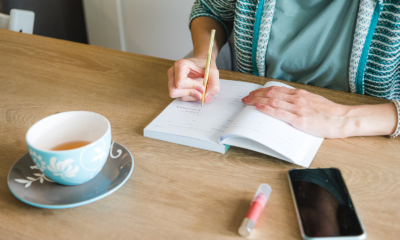Why You Need a Digital Detox and 8 Ways to Unplug

This article contains some affiliate links to resources you may find helpful, at no extra costs to you. All opinions are my own.
“You have 263 unread messages.”
Did you come back from your Summer break only to find yourself flooded with work mail?
Smartphone stress is real. Countless of studies have been published about the downsides of the latest technology, from stress and sleeping problems to anxiety, depression and disturbed body image.
When you’re feeling overwhelmed with email or keeping up with social media, the common advice is to consider a digital detox: taking a (radical) break from checking Instagram, WhatsApp and news feeds. Hey, I dedicated a blog post to it myself.
But recently I read something interesting in the Dutch Psychologie Magazine. Do we really need to force ourselves offline to find peace or is there a way to get the benefits from smartphones whilst avoiding the pitfalls? Can we create a digital diet that works for us, not against us?
Because especially if you have a chronic disease, digital devices can be a lifesaver. I became ill in the early days of the Internet – gosh that makes me sound like a dinosaur – and trust me, life is better when you can connect with friends on Facebook, order groceries online and have access to unlimited entertainment. What’s more, apps like Headspace or activity trackers can be useful tools to boost your health and happiness.
Australian psychologist Jocelyn Brewer suggests an alternative to unplugging completely: design an online environment that nourishes you.
Brewer compares your online consumption with a healthy food pattern. In the long term, strict diets and detoxes rarely work. Instead, it’s better to focus on what and how much we put into our bodies and minds, and why.
Just like with food, your virtual activities can be divided into two groups: ‘vitamins’ and ‘junk food’. And just like with a ‘real’ diet, a good question to ask yourself is: “What’s the nutritional value of my digital diet?”
“Ditch the digital calorie counting and think about “virtual vitamins” instead.” – Jocelyn Brewer
Only you can decide which online activities are nourishing and which ones are empty calories. You might get fired up by reading heated debates or staying up-to-date with the latest news, whereas it depletes me emotionally. I enjoy social media to stay in touch with friends’ lives, but that may give you FOMO.
To figure out what works best for you, a digital detox might still be a good place to start. But in the long run, it’s more realistic to be mindful, meaningful and moderate about using your smartphone. The good news is, the concept of crowding out works just as well for your digital diet as it does for bodily nutrition:
The more you fill yourself with good stuff – online and offline – the less room there will be left for bingeing junk.
What does your (ideal) digital diet look like?
Dive deeper into this topic with ‘13 Thoughts on Healthy Social Media Use with Chronic Illness’, or check out ’28 Healthier ways to Nourish Your Mind‘.